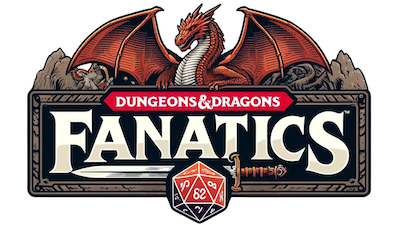
New Study Finds Playing D&D is Good for Mental Health
As an Amazon Associate I earn from qualifying purchases.
While players of Dungeons & Dragons have long known that the game offers a good time, according to new research from a team of clinical psychologists, D&D is also good for mental health.
The study was recently completed by two researchers from the School of Applied Psychology at University College Cork in Ireland, who sought to better understand the positive emotional aspects of the game and how it could potentially be used as a therapeutic tool (something counsellors and psychologists have also been exploring in recent years).
So just why is playing D&D good for your mental well-being? Below, we dig into the findings.

How was the D&D Mental Health Study Conducted?
For the study, the researchers recruited players from three different countries. All were over 18 with at least one year’s experience with role playing games and played D&D frequently on either a weekly or bi-weekly basis.
Participants then underwent semi-structured interviews in which they were asked how they discovered D&D and how the game had impacted their lives since then. They also discussed the characters they were playing and some of their recent sessions. Participants who were Dungeon Masters were also asked about their experiences running the game. The results from all participants were then analyzed to identify key clinical themes.
One limitation of the study, however, is that all of the participants had volunteered to speak to the researchers about D&D and were frequent players. As such, they were already predisposed to have a positive opinion of the game. The research team has pointed out that further study is needed across a larger sample size, including those who aren’t already familiar with the game. That being said, the data is still extremely positive.

Why is D&D Good for Mental Health?
“This study found that D&D can bring a myriad of benefits for players,” says Dr Conor Linehan, the study’s senior author. “Although there are some clinicians and community groups that currently use role-playing games therapeutically, those groups are predominantly active in the United States. Our study suggests that a wider rolling out of such therapeutic role-playing groups may be of benefit in Ireland and across the globe, offering the great potential to support skills development, emotional exploration, problem-solving and foster meaningful social connection.”
The researchers identified five key themes and two sub-themes that indicate the positive potential of the game: escapism, self-exploration, creative expression, social support and routine.

“Our research found that players discussed the benefits of escapism that accompanied playing D&D, and the positive impact that this had on their mental health,” says PhD researcher Orla Walsh, who led the study. “Players reported feeling a strong sense of control in-game during times when they felt they did not have control outside of the game. Whilst many hobbies may allow for creative expression, D&D uniquely allows players to collaboratively build and inhabit worlds of their creation.”
The team also pointed out the positive social aspects of the game which are closely linked to a general sense of emotional well-being. “The social support nurtured by playing D&D gives players emotional and social connection and offers them a space in which they can express themselves freely,” Walsh says. “While social support is a recognized benefit of many group activities, the collaborative storytelling aspect of D&D fosters a unique sense of camaraderie and shared experience among players.”

Final Thoughts
While the study’s findings highlight the therapeutic potential of D&D, the researchers do point out that it shouldn’t replace other forms of support and that D&D should be viewed as a potential complementary therapy to a much larger holistic approach to mental health. They also point out that with a toxic group of players or Dungeon master there’s the potential to cause discomfort or trigger negative reactions (something that will be instantly familiar to anyone who’s frequented Reddit’s RPG Horror Stories).
Still, the evidence suggests that game has the power to create meaningful emotional experiences, strong relationships and positive mental health. So while Dungeons & Dragons might not solve all your problems, if the study is right, it’s also not a bad place to start.
More D&D News Coverage
For more from the world of Wizards of the Coast, visit our D&D News page.






